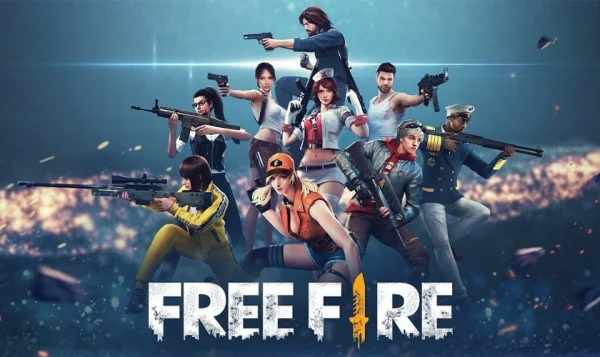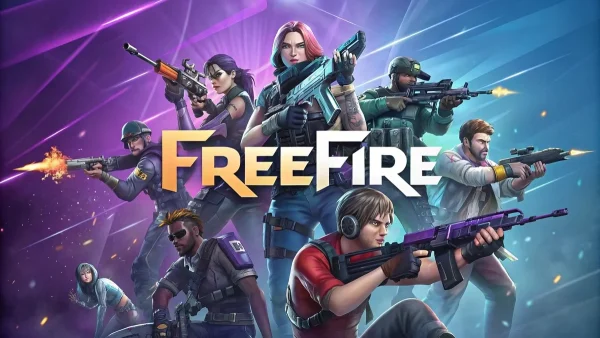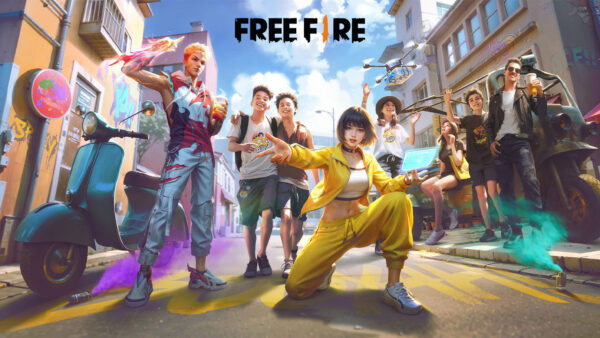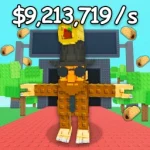Popular Now
Introduction
Garena Free Fire has become a global phenomenon in mobile battle royale gaming. With millions of daily players, its short, fast-paced matches, diverse characters, and mobile-friendly optimization have helped it dominate both casual and competitive scenes. However, lurking beneath its surface is a controversial issue that continues to stir debate across its community: the Pay-to-Win (P2W) system, especially how character abilities, exclusive skins, and diamond-based upgrades create an unfair competitive environment. This article investigates how this monetization structure affects gameplay balance, from early to late-game, casual to ranked, and free-to-play (F2P) to paying players.
1. The Structure of Free Fire's In-Game Economy
Free Fire operates with two main currencies: Gold (earned through gameplay) and Diamonds (premium currency bought with real money). While many cosmetics and some characters can be bought with Gold, high-tier content—especially game-impacting upgrades—requires Diamonds.
The monetization model is tied closely to:
-
Character skills
-
Weapon skins with stat boosts
-
Pet abilities
-
Luck-based spins and events
This economy creates a clear line between F2P players and P2W users, where spending money can translate directly into gameplay advantages.

2. How Character Abilities Create Imbalance
Each Free Fire character has unique abilities—passive or active—that can influence aiming, healing, running speed, or recoil. The problem? Many of the strongest characters are locked behind Diamond purchases or paid events.
Some examples:
-
Chrono: Deploys a force field while increasing movement speed.
-
Alok: Heals allies and increases their movement speed—game-changing in team fights.
-
Jota: Restores HP when hitting enemies with firearms.
These advantages go far beyond cosmetic and can decide matches. Players who don’t spend are left at a clear disadvantage.
3. Skill Slot Expansion: Pay for More Power
Another major issue is skill slot unlocking. While each character has one innate skill, you can equip up to four skills—if you unlock more slots using Diamonds.
This means P2W players can:
-
Combine healing, movement, and recoil control skills
-
Create overpowered meta builds
-
Dominate fights even with average aim or tactics
F2P players often get stuck with one or two abilities, greatly limiting their competitiveness.
4. Weapon Skins That Affect Stats
Free Fire’s weapon skins don’t just look cool—they alter gameplay stats like:
-
Rate of fire
-
Reload speed
-
Damage
This creates imbalance because:
-
The best skins are only available via Diamond spins or top-up events
-
Some skins provide such strong boosts that they can turn the tide of any duel
-
F2P players are often stuck with base weapons with no boosts
In most competitive games, skins are purely visual. In Free Fire, they change the game.

5. Luck-Based Systems: Spins and Events
Garena regularly launches gacha-style lucky spins, crates, and “mystery shops.” These systems encourage players to spend in hopes of getting limited-time characters, skins, or emotes.
Why it’s problematic:
-
There’s no guarantee of rewards—meaning players may spend a lot for nothing
-
Key gameplay upgrades like “Elite Pass” or “top meta characters” are locked in these chance-based systems
-
These events promote spending over skill
For F2P users, it’s not just a time grind—it’s a brick wall.
6. Pet Abilities: The Overlooked Advantage
Pets in Free Fire aren’t just cute companions—they come with abilities that give combat bonuses. For example:
-
Falco: Improves skydiving speed—crucial for early-game loot.
-
Detective Panda: Restores HP after kills—similar to Jota.
-
Beaston: Increases throwing range for grenades and gloo walls.
Just like characters, the best pets are often locked behind paywalls, and leveling up their abilities costs Diamonds. These passive boosts stack with character skills and tip the scales further.
7. Ranked Mode and the Unfair Climb
Ranked mode should test skill, strategy, and teamwork. Instead, it often becomes a showcase of paid advantages.
P2W problems in ranked include:
-
Meta characters + full skill slots
-
Strong pets + pay-to-win weapon skins
-
F2P players facing squads who paid hundreds of dollars
Result: Many F2P users plateau at mid ranks (Gold/Platinum) while P2W players dominate Diamond or Heroic.

8. Psychological Impact on the Community
Pay-to-win doesn’t just affect balance—it also affects player satisfaction and mental health, especially among younger gamers.
Key concerns:
-
Feeling excluded or underpowered
-
Toxicity from players mocking F2P builds
-
Pressure to spend to "belong"
Over time, this reduces enjoyment, increases burnout, and divides the community into classes: whales, mid-spenders, and “noobs.”
9. What Garena Has (and Hasn't) Done
To its credit, Garena has:
-
Occasionally given free skill characters through events
-
Allowed some weapon skins to be bought with Gold (temporarily)
-
Provided pet trials and Elite Pass discounts
But these measures are inconsistent and rare. Most competitive items are still behind Diamond-exclusive paywalls. Unlike games like Fortnite, where cosmetics never affect gameplay, Garena has not fully addressed the core P2W issue.
10. Paths Toward a Fairer Ecosystem
For Free Fire to thrive long-term, some solutions include:
1. Balance adjustments:
-
Nerf character combos that are too powerful
-
Reduce the gap between paid and free skill slots
2. Earning potential:
-
Let players earn Diamonds or exclusive items via gameplay achievements
-
Offer grind-based alternatives to gachas
3. Cosmetic-only monetization:
-
Make skins visual-only, like in Valorant or Fortnite
4. Transparency and fairness:
-
Publish gacha odds
-
Cap spending on loot boxes
By making competitive tools accessible to everyone, Free Fire can preserve fairness while still offering monetization through purely cosmetic options.
Conclusion
Free Fire's success lies in its dynamic gameplay, global appeal, and community-driven content. But the growing influence of pay-to-win systems—through character skills, weapon skins, and pets—has introduced serious balance problems. While the game's monetization helps fund development and esports events, it alienates non-paying users and erodes fair competition. If Garena wants Free Fire to remain sustainable and competitive, the company must rethink how it monetizes core gameplay mechanics—before the game loses the community that made it great.


















